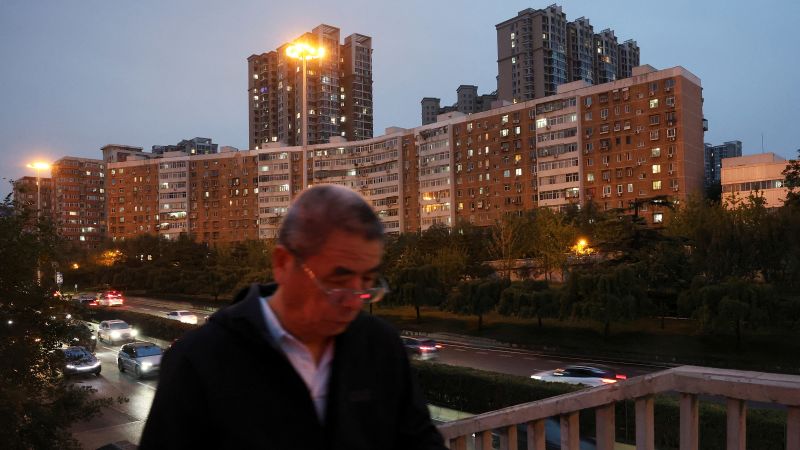In response to China’s struggling real estate market and concerns about missing its 5% growth rate target, leader Xi Jinping announced a stimulus package at the end of September. The package, mainly focused on monetary measures, was not enough to restore bullishness in the economy, leading economists to expect an additional stimulus package worth up to 10 trillion yuan. However, Thursday’s press conference by the Housing Ministry did not meet those expectations, resulting in a drop in Chinese property shares. The ministry announced incremental housing supports, which were deemed insufficient to stabilize the housing market by experts like Larry Hu, chief China economist at Macquarie.
During the press conference, the Ministry of Housing and Urban-Rural Development pledged to nearly double bank lending to designated property projects to four trillion yuan by the end of 2024. In January, China unveiled a “whitelist” of construction projects to allow banks to provide loans for them. Xiao Yuanqi, deputy director of the Financial Supervision Administration, reported that approved loans for these projects had already reached 2.23 trillion yuan by October 16. Housing Minister Ni Hong expressed confidence in the real estate market’s recovery and emphasized the implementation of future plans.
The ailing property sector is believed to be the root cause of China’s economic struggles, with the sector accounting for a significant portion of economic activity and household wealth. Central bank governor Pan Gongsheng attempted to address the country’s stalling growth by announcing cuts to lending rates and reserves for banks in September. This move aimed to free up funds for new lending and stimulate economic activity. The real estate market began cooling in 2019 and fell into a deep trough due to government-led restrictions on developer borrowing, leading to a decline in real estate prices and consumer confidence.
The financial crisis in the real estate sector has had a significant impact, with individuals and companies seeking to preserve their wealth by selling assets and reducing consumption and investment. This has further contributed to the economic slowdown in China. The measures announced by the government, while aiming to stimulate growth, have not been sufficient to restore confidence in the housing market or boost economic activity. Investors and economists remain cautious about the future of China’s economy and are eagerly awaiting additional stimulus packages to address the challenges facing the country. Despite the efforts to support the housing market, the slow pace and incremental nature of the measures have left many concerned about the effectiveness of the government’s interventions.













